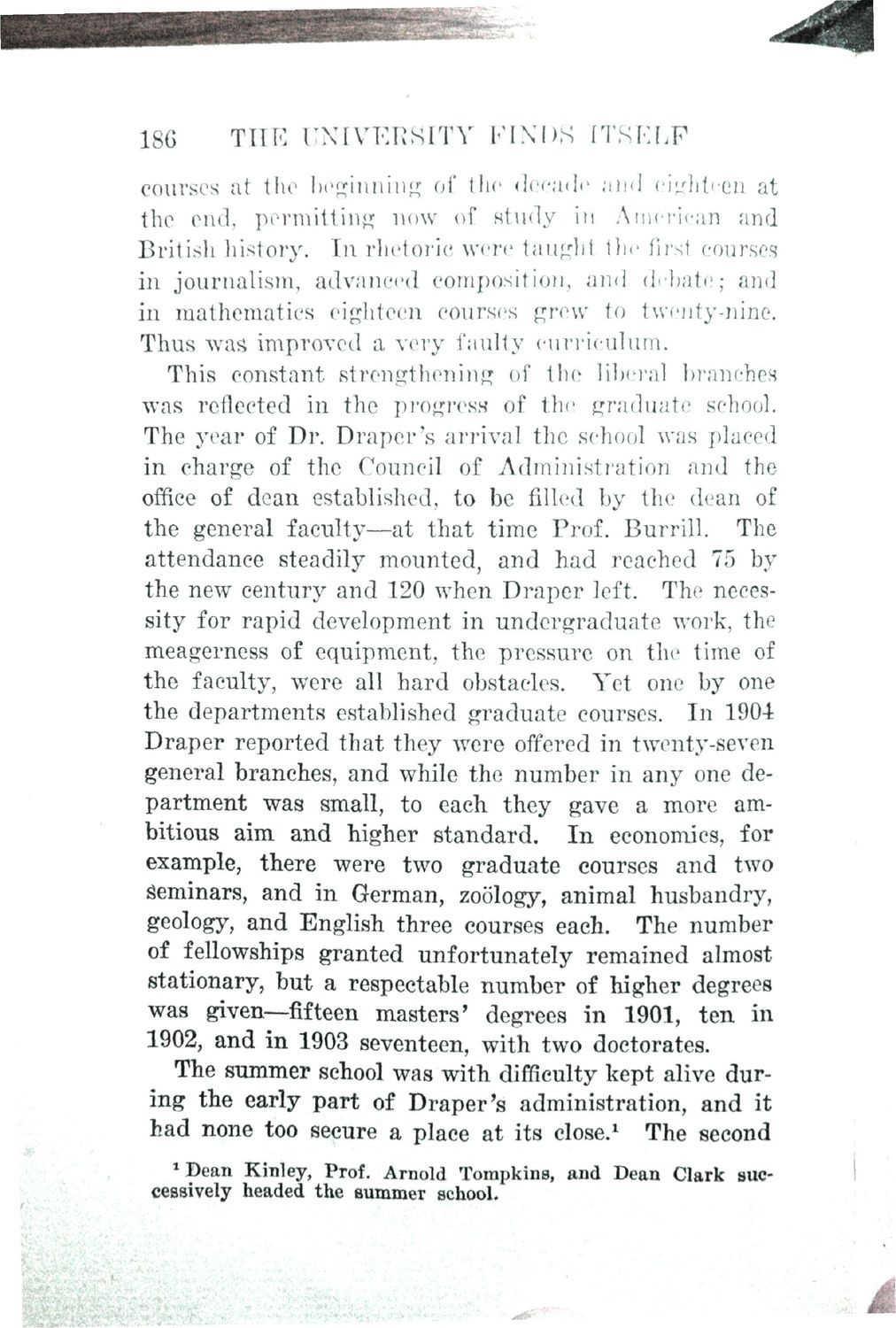| |
| |
Caption: Book - History of the University (Nevins)
This is a reduced-resolution page image for fast online browsing.

EXTRACTED TEXT FROM PAGE:
186 THE UNIVERSITY FINDS ITSELF courses at the beginning of the decade and eighteen at the end, permitting now of study in American and British history. In rhetoric were taught the first courses in journalism, advanced composition, and debate; and in mathematics eighteen courses grew to twenty-nine. Thus was improved a very faulty curriculum. This constant strengthening of the liberal branches was reflected in the progress of the graduate school. The year of Dr. Draper's arrival the school was placed in charge of the Council of Administration and the office of dean established, to be filled by the dean of the general faculty—at that time Prof. Burrill. The attendance steadily mounted, and had reached 75 by the new century and 120 when Draper left. The necessity for rapid development in undergraduate work, the meagerness of equipment, the pressure on the time of the faculty, were all hard obstacles. Yet one by one the departments established graduate courses. In 1904 Draper reported that they were offered in twenty-seven general branches, and while the number in any one department was small, to each they gave a more ambitious aim and higher standard. In economics, for example, there were two graduate courses and two Seminars, and in German, zoology, animal husbandry, geology, and English three courses each. The number of fellowships granted unfortunately remained almost stationary, but a respectable number of higher degrees was given—fifteen masters' degrees in 1901,;||en in 1902, and in 1903 seventeen, with two doctorates. The summer school was mt&J|Jfficulty kept alive during the early part of Draper ^administration, and it had none too secure a place at its close.1 The aecond 'Bean Kinley, Prof. Arnold Tompkins, and Dean Clark successively headed the summer school.
| |